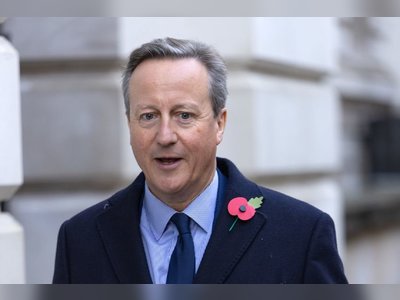UK Economy Stalls as Reeves Faces First Budget Test
Despite early strength, growth has slowed, borrowing risen sharply, and key labour and consumer indicators weakening ahead of the autumn fiscal statement
The United Kingdom’s economy entered a period of pronounced weakness just over a year after Chancellor of the Exchequer Rachel Reeves delivered her first Budget, leaving the government’s flagship commitment to “go further and faster” in doubt.
Growth collapsed to just 0.1 per cent in the third quarter of 2025, while public borrowing and labour market strains compounded the fiscal challenge.
Earlier in the year the UK economy had been flagged by the International Monetary Fund as on course for the second-fastest expansion among the G7 advanced economies.
However, that momentum faltered sharply — figures show day-to-day government borrowing reached £84 billion between April and October, the highest level since the pandemic era.
On the labour front, payrolls fell in September and October at the fastest rate since late 2020 and the unemployment rate rose to 5.0 per cent — the highest since early 2021. Real wage growth has virtually stalled, with inflation-adjusted average earnings rising by only 0.5 per cent year-on-year in the third quarter.
Consumer sentiment and spending have also cooled.
Retail sales volumes declined in October for the first time since May, and surveys such as the GfK consumer-confidence index registered fresh weakness in November.
Inflation has eased to 3.6 per cent, but remains well above the Bank of England’s 2 per cent target, keeping interest rates elevated at 4 per cent despite five reductions earlier in the year.
With the Autumn Budget scheduled for 26 November, the chancellor is under intense pressure to strike a delicate balance between raising revenue, cutting spending and generating growth — all while adhering to her self-imposed fiscal rule requiring day-to-day spending to be covered by tax receipts and public debt to shrink relative to gross domestic product by 2029-30.
Analysts warn that without a credible plan, market confidence could falter, borrowing costs could rise, and the UK may slip into the “worst of all worlds” of weak growth, high taxes and rising debt.
For the government, delivering a Budget that satisfies both fiscal discipline and growth imperatives is the defining test of the coming months.
Growth collapsed to just 0.1 per cent in the third quarter of 2025, while public borrowing and labour market strains compounded the fiscal challenge.
Earlier in the year the UK economy had been flagged by the International Monetary Fund as on course for the second-fastest expansion among the G7 advanced economies.
However, that momentum faltered sharply — figures show day-to-day government borrowing reached £84 billion between April and October, the highest level since the pandemic era.
On the labour front, payrolls fell in September and October at the fastest rate since late 2020 and the unemployment rate rose to 5.0 per cent — the highest since early 2021. Real wage growth has virtually stalled, with inflation-adjusted average earnings rising by only 0.5 per cent year-on-year in the third quarter.
Consumer sentiment and spending have also cooled.
Retail sales volumes declined in October for the first time since May, and surveys such as the GfK consumer-confidence index registered fresh weakness in November.
Inflation has eased to 3.6 per cent, but remains well above the Bank of England’s 2 per cent target, keeping interest rates elevated at 4 per cent despite five reductions earlier in the year.
With the Autumn Budget scheduled for 26 November, the chancellor is under intense pressure to strike a delicate balance between raising revenue, cutting spending and generating growth — all while adhering to her self-imposed fiscal rule requiring day-to-day spending to be covered by tax receipts and public debt to shrink relative to gross domestic product by 2029-30.
Analysts warn that without a credible plan, market confidence could falter, borrowing costs could rise, and the UK may slip into the “worst of all worlds” of weak growth, high taxes and rising debt.
For the government, delivering a Budget that satisfies both fiscal discipline and growth imperatives is the defining test of the coming months.










